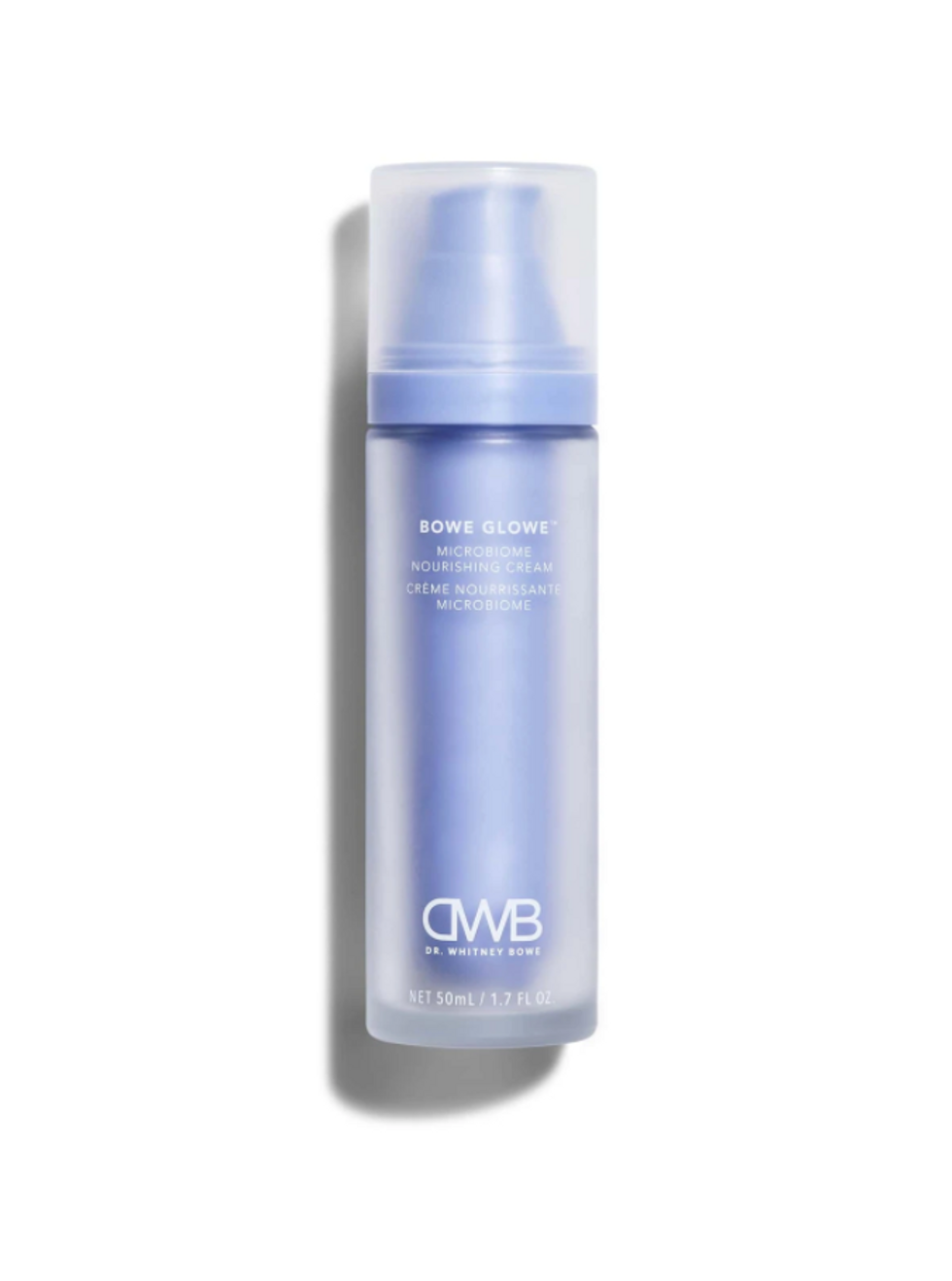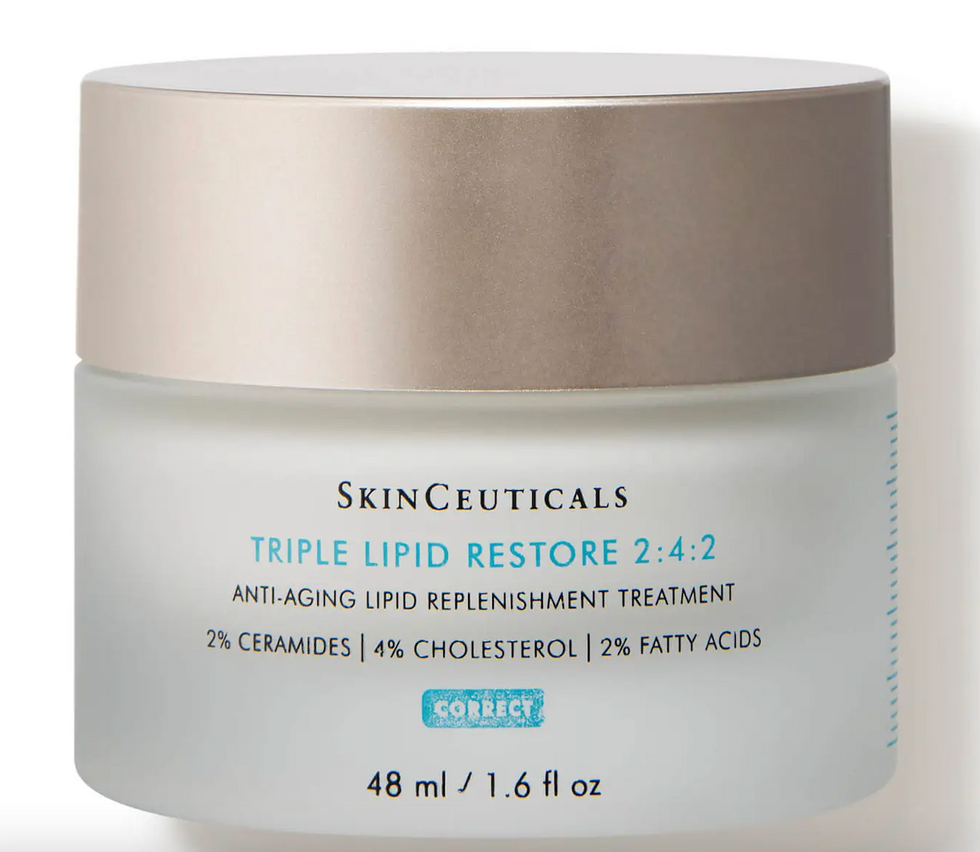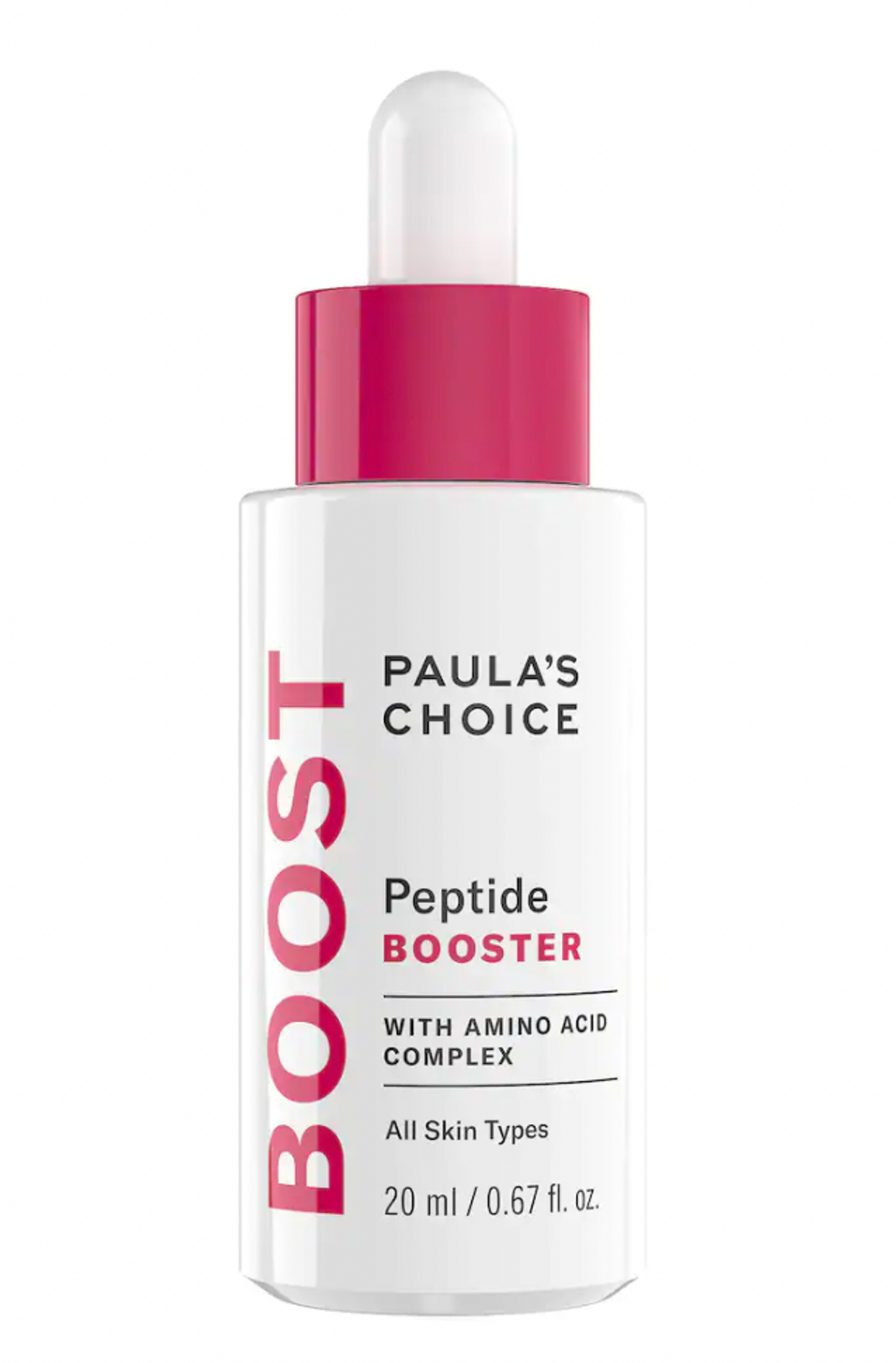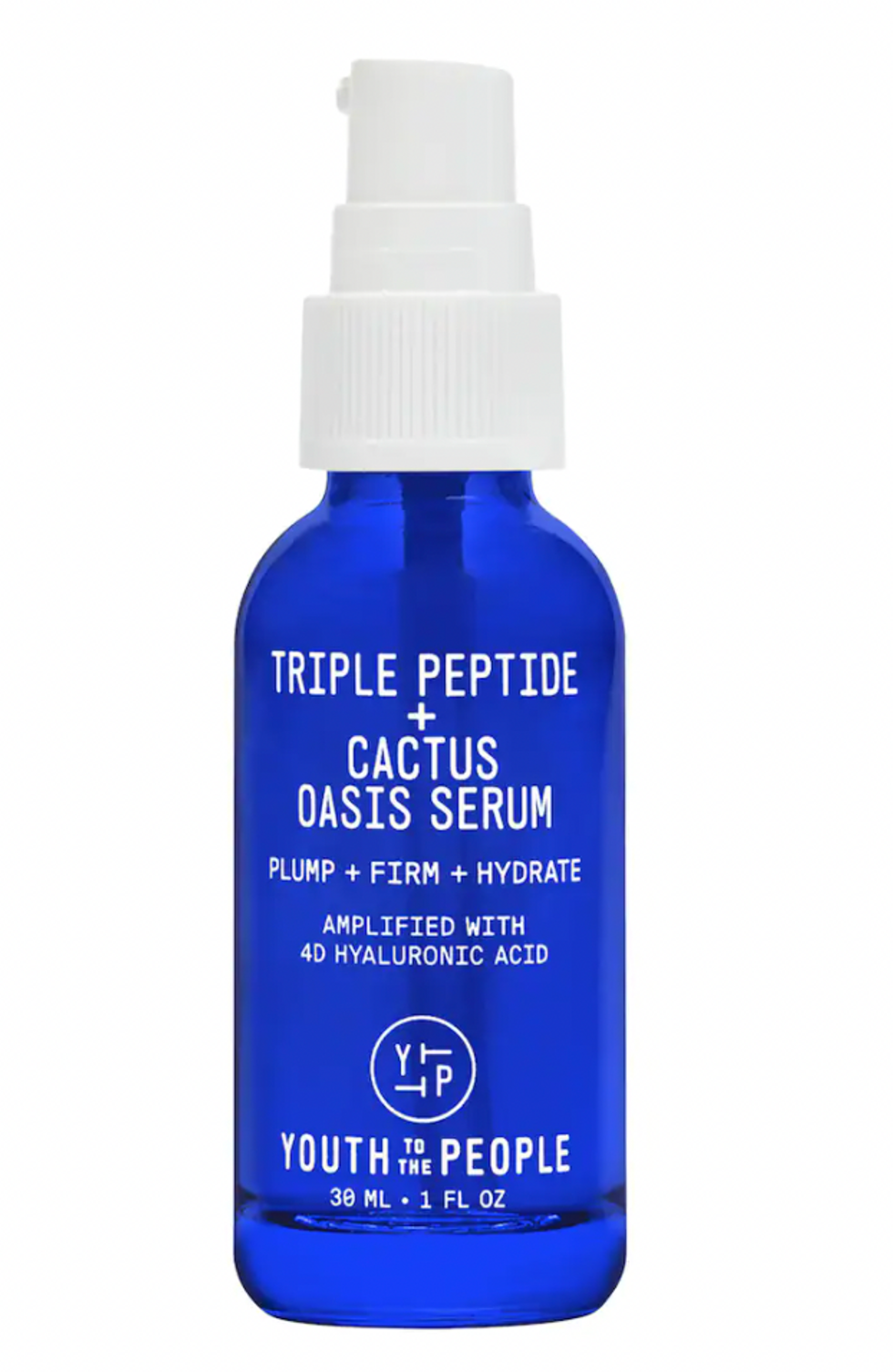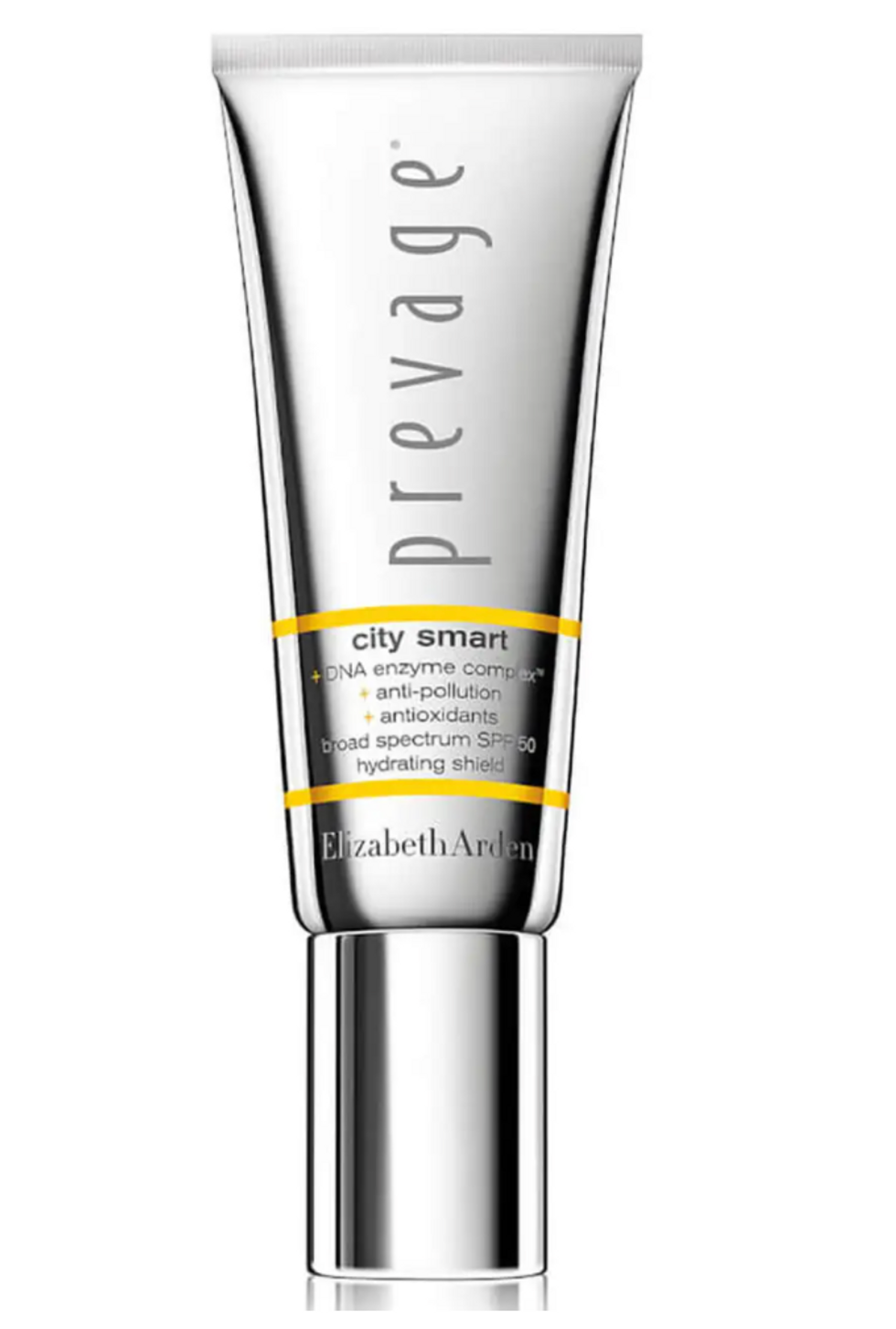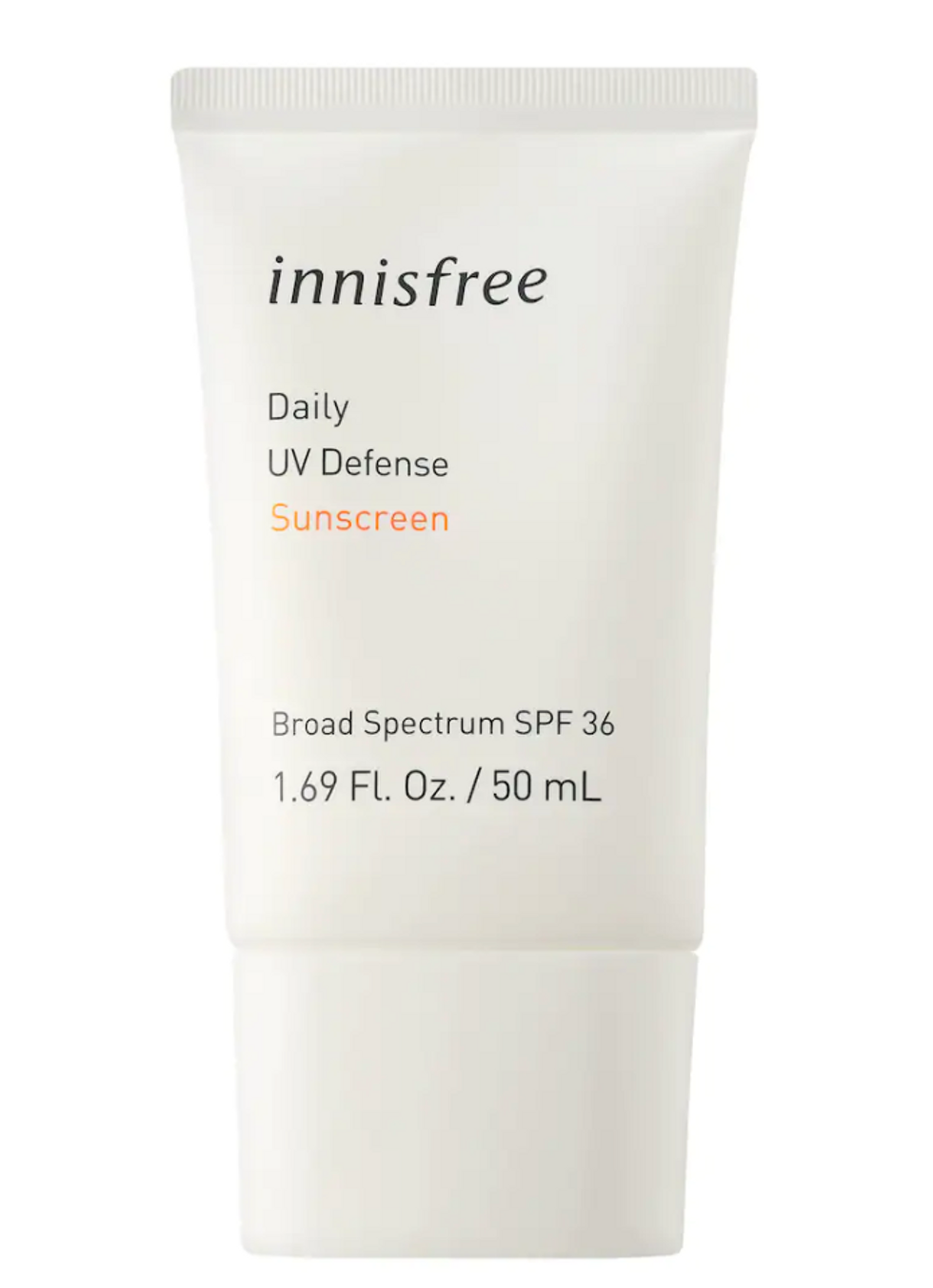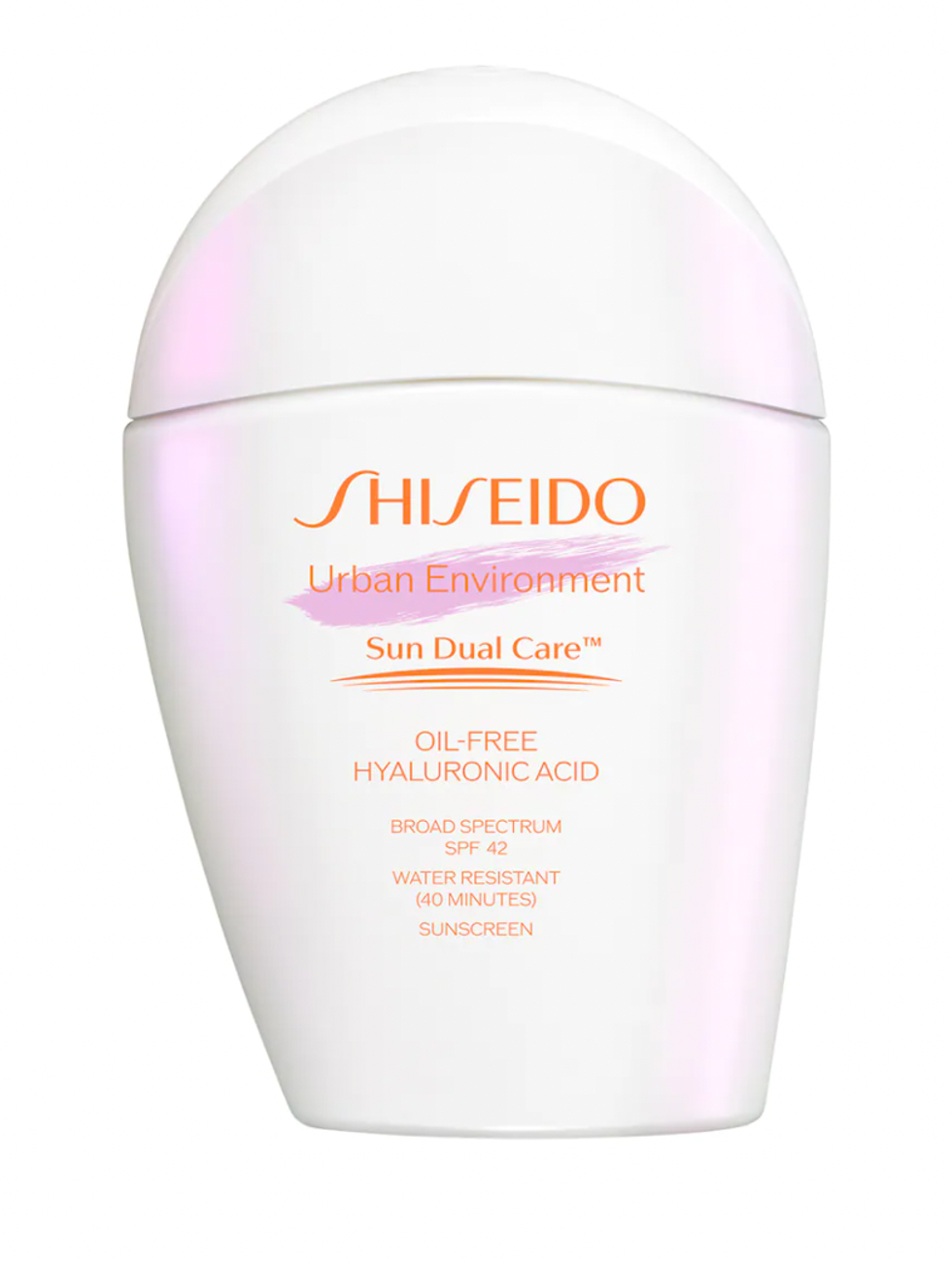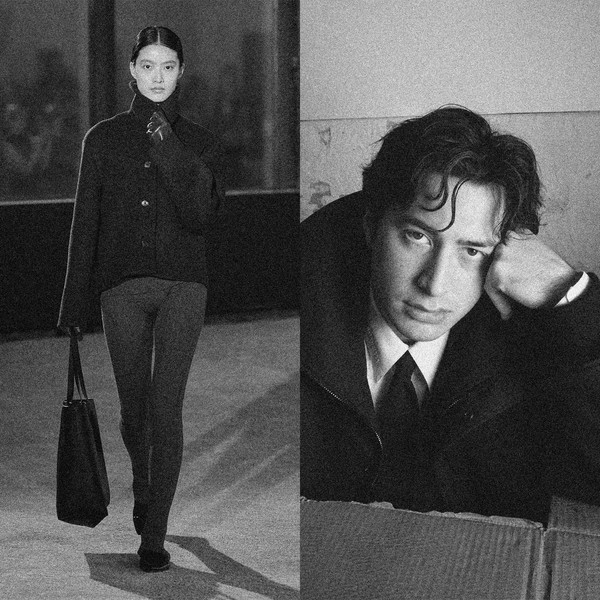A Beginner's Guide to Tretinoin
The retinoid is an acne-fighting powerhouse, but with its rewards also comes risks.

I am one month into my tretinoin journey, and it's already my favorite skin product I’ve ever used. I’m relatively new to retinol and retinoids and have largely avoided them since a disastrous stint with Differin left me with nothing but a bad breakout and regret. My understanding is that everyone’s skin will react differently to these more advanced-level skincare products—Differin (or adapalene) might be the key to clear, bright skin nirvana for some, but it just didn’t work for me, no matter slowly I introduced it into my routine or how much I moisturized. Needless to say, I was nervous to start tretinoin—a retinoic acid so strong that in the United States, you can only get it with a prescription. If used incorrectly, dermatologist Dr. Dendy Engelman warns tretinoin can cause severe dryness, irritation, and peeling.
Tretinoin is an anti-aging, acne-fighting powerhouse, and I’m not ashamed to say that dozens of TikTok testimonials had me convinced to start using it. I began my relationship with Retin-A, a popular prescribed product that contains tretinoin, by using a pea-sized amount once a week for three weeks. I then ramped it up to twice a week. I am just now seeing results: the texture on my nose and chin has softened and cleared significantly in a way that years of salicylic acid products have never achieved. I am experiencing a slight amount of dryness and peeling on my cheeks, however, so I decided to consult dermatologists Dr. Whitney Bowe and Dr. Dendy Engelman on best practices, including what ingredients to pair with tretinoin and which to avoid at all costs.
Nourish Your Skin Barrier
To keep your skin healthy, Dr. Bowe recommends looking for products with prebiotics, squalane, ceramides, and sunflower seed oil. Prebiotics, like inulin and alpha-glucan oligosaccharides, “support the growth of beneficial bacteria.” Squalane is a form of squalene, a compound found in the skin that the body produces less of with age. Squalane functions as an excellent moisturizer, helping to make the skin more smooth and soft. Ceramides are also naturally found in the skin and are vital to the protective skin barrier, which helps to protect the skin and retain existing moisture. According to Dr. Bowe, “ceramides work to replenish, moisturize, and soothe skin, plus help to improve the look of texture, strength, hydration, and skin elasticity, which can also help with the appearance of fine lines and wrinkles.” She recommends sunflower seed oil for those with sensitive skin as it's soothing and also helps to retain the moisture in the skin barrier.
Be Mindful of Other Active Ingredients in Your Routine
Because tretinoin is quite strong, it’s important to ensure any other products in your regimen are compatible. Dr. Engelman recommends avoiding benzoyl peroxide, resorcinol, salicylic acid, or sulfur as they also contain peeling agents that would further irritate the skin. Dr. Bowe advises steering clear of exfoliating acids and vitamin C, but notes that peptides can work well in conjunction with tretinoin.
Protect Your Skin
Tretinoin can increase your sensitivity to direct sunlight, causing you to burn more easily, so it’s advised to use it at night and be extra vigilant about wearing hats, avoiding direct sunlight, and reapplying your sunscreen. Dr. Engelman recommends the Prevage City Smart Hydrating Shield SPF 50 by Elizabeth Arden.
To be clear, tretinoin isn't for everyone—definitely consult your dermatologist rather than ask your friend to grab you a tube in Mexico like I may or may not have done—but it's worth looking into if you want to mitigate acne or early signs of aging. As someone who previously believed she would only have to deal with one of those concerns at a time, tretinoin is a godsend.

